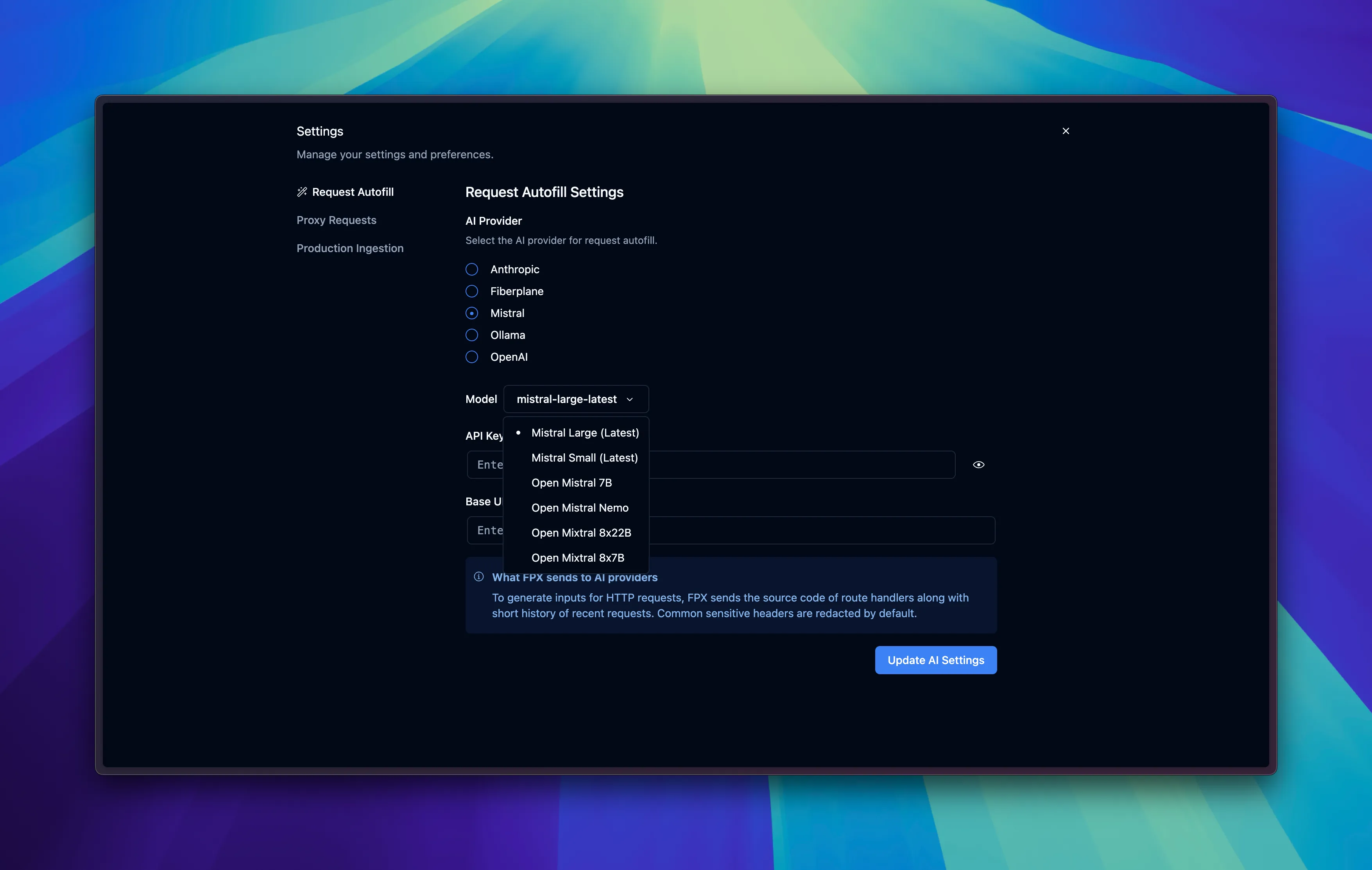In the workflow of building and debugging a new API, creating sample request data is a common and often tedious task. There are specifying parameters, different data formats, authentication mechanisms, and making sure the request structure is retrieving the right data.
That’s why in Fiberplane Studio, we help you generate request payloads using the LLM of your choice. AI Request Autofill is an easy and fast way to really test the resiliency of your API like the QA engineer professional you already are.
We just added support for Mistral and Ollama in addition to previously existing Anthropic and OpenAI. Check out how it works below.
How to enable and generate a sample payload
After you enable AI features in Studio and select your LLM provider, toggle back to your main UI. By default, Studio will generate request data that takes inspiration from the most recent requests you’ve made to your API, and it will try to help you test the happy path.

If you want to change to a more challenging behavior, select the “Hostile” approach under the testing persona.
Under the hood, Studio keeps track of the most recent requests you’ve made to your API and the current handler code in order to generate request data that follows your current testing path. If you have imported your routes via an OpenAPI spec, the AI will also generate requests based on the definitions in the spec.
Besides generating a request body, Studio can also prefill data for URL path parameters, query parameters, and request headers.
Certain sensitive headers are redacted by default like Authorization and Cookie though note we recommend using this feature when debugging locally, vs working with sensitive production data.
Debug your Hono APIs
Fiberplane Studio is a local debugging companion designed to help you to build, test, and develop Hono APIs. It’s open source and available to try now - check out the getting started guide here.

